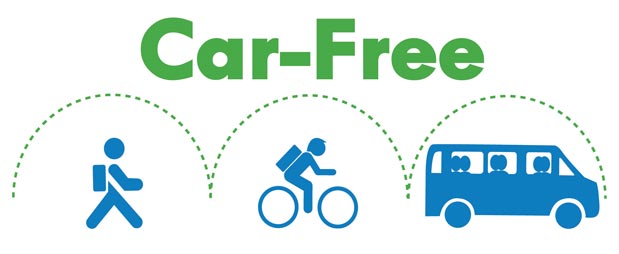ASTANA – In connection with a project to promote Car Free Days in Almaty, the UNDP and its Global Environmental Facility (GEF) held a festival dedicated to finding creative ways to use parking spaces in the city.
“Almaty designers, artists and young architects used parking spots to organise so-called ‘parklets’ – mini-zones for recreation – where citizens could rest and see for themselves how the urban space could be changed in just one day,” the UNDP said about the project in an article on the organisation’s website.
The project, which is also supported by the akimat (city administration) of Almaty, is intended to demonstrate the inefficiency of using city space for parking cars, according to a UNDP article about the event, by showing alternative uses for parking spaces.
Public coordinator of the campaign and landscape architect at the Gorod Projects Laboratory Katerina Novoselova said, “The purpose of the Parking Day is to show that the city is a common space for all of us and how the vast territories occupied by vehicles could turn into parks, cafes and recreation areas for our citizens. This campaign is a small drop in people’s consciousness, an attempt to demonstrate to the citizens that our city is communal and we’re able to fill it with useful content,” according to the UNDP story.
Manager of the City of Almaty Sustainable Transport Project Yelena Yerzakovich told The Astana Times that “Almaty has nice streets with greenery and sidewalks but all this space is not distribute between all street users equally, and pedestrians and cyclist have not enough space or are locked out by parked cars. … Our partners and pedestrian walking around supported the idea of sharing space for some alternative activities and highlighted problems with transport-related air pollution.”
More than 60 cyclists and 1,000 pedestrians took part in the event, according to the UNDP, taking pictures in parklets, talking and relaxing. Alesya Nugayeva, one of the pedestrians who dropped by the event, said, “For me it was the first experience of successfully combining something dynamic and something static: the speed of passing cars, people hurrying to work and the dangling green oasis of calm in the midst of a city centre with its smiling people inviting you to enjoy pastry, sit in a chair, have a chat, play games, ride a bike – to dedicate one day to take care of the city, to stop and breathe the scent of September after a morning rain and to take a walk,” the UNDP reported.
The parklets created for Parking Day were chosen for their locations near sidewalks, cafes and small shops in order to emphasise the mission of the campaign: to remind people that parking spaces are common areas of city citizens, not the private property of motorists, the UNDP said. They noted that the campaign also attracted media attention and is generating stories. The project was supported by students from the city’s universities as well as small businesses in Almaty.
The UNDP is in the last stages of the 2011–2015, $81 million City of Almaty Sustainable Transport project funded by the UNDP/GEF, the European Bank for Reconstruction and Development, the Almaty city government and the World Bank to reduce the growth of transport-related greenhouse gas emissions in the city while also improving urban environmental conditions.
The project notes that Kazakhstan is the largest greenhouse gas emitter in Central Asia, and that the country’s transport sector is the fastest-growing source of carbon dioxide emissions, with Almaty’s ground transport providing a significant share. The overall project aims to improve the management of public transportation and air quality in Almaty, build capacity in Almaty to holistically plan and implement improvements in the efficiency and quality of public transport, build capacity to holistically plan and implement integrated traffic management measures in Almaty City and to raise awareness and increase knowledge of sustainable transport, according to the UNDP.
According to a Tengrinews report in November of last year that cited UNDP data, only 30 percent of all journeys in Almaty are taken using public transport. Meanwhile, motorised transport accounts for more than 80 percent of urban air pollution in the city, according to the report. They forecast a 75 percent increase in air pollution by 2023 should the amount of carbon dioxide emissions rise from 2.65 million tonnes in 2012 to 4.99 million tonnes.

